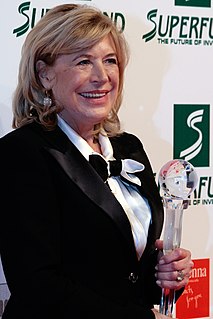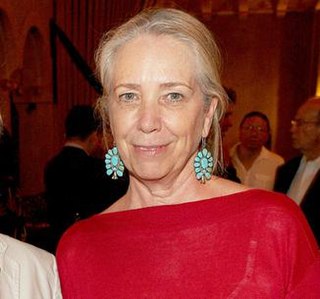A Quote by Sebastian Lelio
To me, there was something moving about the idea of telling the story of a lady who is, in a way, a forgotten character - someone who would normally be a secondary role in a movie.
Related Quotes
I would love to sign on to do a movie if it was the right role and if it was the right script, because I would be taking time away from music to tell a big grand story, and spend all of my time and pouring all of my emotions into being someone else. So for me to do that, it would have to be a story worth telling.
I remember working with Jackie Chan on Shanghai Noon [2000], and when we were working on the script, I thought that my character thought about being an outlaw the way a kid today would think about being a rock star, as a way to impress girls. So it was just kind of a funny idea, but once we had that idea, it changed the character and made it something that was funnier to me to play.
I'd really like people to see me as a real actress, which I am, but they don't. It's hard to get them to see me as a musician, they just see me as a hanger-on to the Stones, which is not what I am at all. It's a good idea, and if something like that would turn up I could do a whole television show. I've thought about playing a landlady, sort of a mad '60s lady, this absolutely insane character. I would love it. It's a great idea.
The movie not only about what story you're telling and who you're looking at. It's mostly about how you're telling it and how you're looking at it. And people who don't like it, who say, "Oh, it's not 'true' because you're looking at it in a stylized way" - it's a movie and it's fiction, so it's also a lot in the artistic direction that it is political.
If children are given some real content, they can feel powerful with their own understanding of it. I think a movie like 'Indian in the Cupboard' will instruct them how to proceed as people. They can think about whether they would have done something the way a character did, how they would have felt about an event in the story.
So you want another story?" Uhh... no. We would like to know what really happened." Doesn't the telling of something always become a story?" Uhh... perhaps in English. In Japanese a story would have an element of invention in it. We don't want any invention. We want the 'straight facts,' as you say in English." Isn't telling about something--using words, English or Japanese--already something of an invention? Isn't just looking upon this world already something of an invention?
I believe movies are one of the great American art forms and the shared experience of watching a story unfold on screen is an important and joyful pastime. The movie theatre is my home, and the idea that someone would violate that innocent and hopeful place in such an unbearably savage way is devastating to me.






































